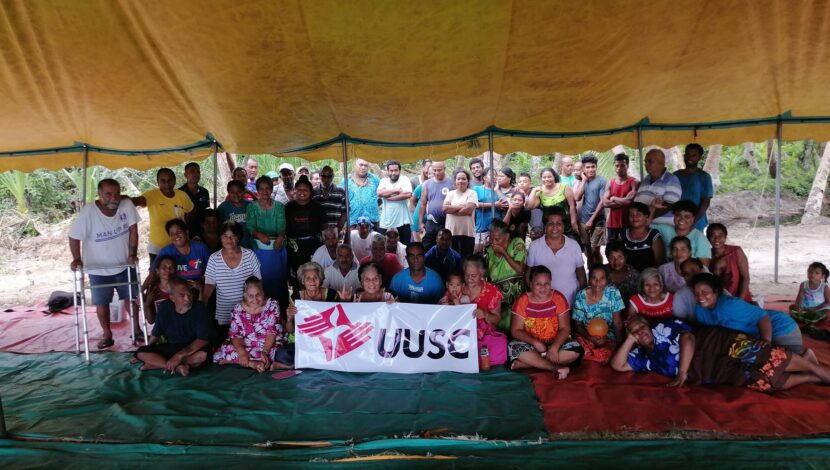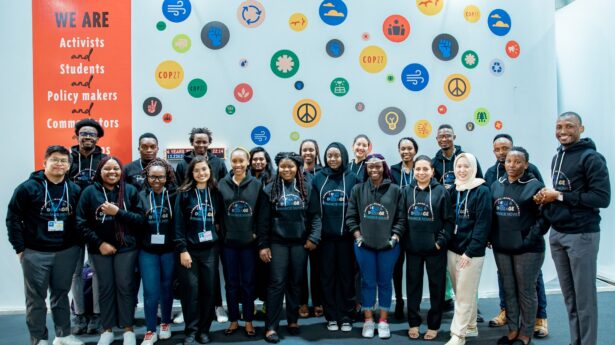Komite Sèvis Inivèsèl Inivèsèl la fè avanse dwa moun atravè kolaborasyon de baz yo.
Climate and Disaster Justice

Climate change poses grave dangers to the world’s most vulnerable populations. Increasing temperatures and variable precipitation are intensifying natural disasters, melting glaciers, rising sea levels, intensifying droughts, and causing widespread flooding. These impacts are increasing food and water insecurity, leading to mass displacement and loss of lives–disproportionately affecting vulnerable populations by widening existing socio-economic inequalities and threatening their basic human rights and dignities.
UUSC’s Climate Justice work focuses on advancing and protecting the rights of populations at risk of climate-forced displacement caused by slow-onset climate impacts. UUSC’s program emboldens the principle of the right to self-determination by prioritizing building protections in place and when necessary and required by our partners, supporting communities to relocate with dignity.
In addition to directly supporting communities at risk, UUSC has a multi-pronged strategy that targets a range of stakeholders to assist communities as they advance their right to self-determination and develop strategies to respond to the spectrum of risks associated with climate-forced displacement.
In alignment with our principles, UUSC’s strategy upholds the timeless adage that civil society organizations around the world share, ‘Nothing about us, without us’. This recognizes the grave injustices that frontline communities have experienced through legacies of imperialism, colonialism, exploitation of Indigenous bodies and lands, and the forcible displacement that many have faced in the name of western modernization.
By centering the voices of communities and by upholding their right to self-determination, UUSC and our partners are actively seeking a pathway to corrective justice—one that is transformative, redemptive, respectful, and sustainable, and most importantly, one that reflects the multiple needs that communities require on the ground.
Learn more about how we do this work:
- Addressing Climate-Forced Displacement in the United States: A Just and Equitable Response
- U.S. Tribes Facing Climate Crisis Unite to Address Human Rights Violations
- A Community-Centered Approach to Climate-Forced Migration (Video)
- Understanding Climate-Forced Displacement (PDF)
- Partnering with Ecological Solutions in the Solomon Islands
- Channeling Community Wisdom to Address Climate Change in Kiribati
- A Minga for the Climate: Supporting Indigenous Climate Work at COP25
Here are some of our partners:

